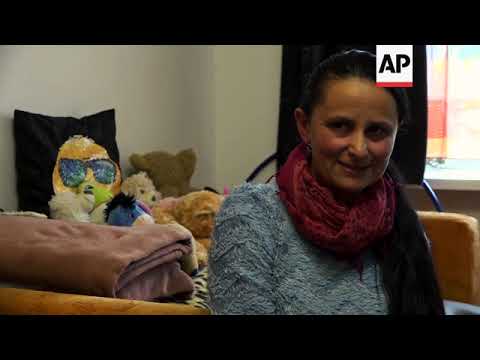Ukraine's Hungarian minority threatened by new education law
(14 Nov 2018) The Hungarian minority in western Ukraine is feeling besieged.
A new education law that could practically eliminate the use of Hungarian and other minority languages in schools after the 4th grade is just one of several issues threatening this community of 120,000 people in Transcarpathia, a Ukrainian region that in the past century has been part of Hungary, Czechoslovakia and the Soviet Union.
Jozsef Kantor, principal of a high school with some 700 students in Velyka Dobron, a village near Chop with a majority Hungarian population, acknowledged that a more modern education law was needed. Still, he lamented the much harsher law now proposed.
“Originally it was a much tamer version. For the second reading, some 3,000 or so amendments were submitted which totally changed its meaning,” he said.
At Kantor’s school, which is undergoing renovations paid mostly by subsidies from the Hungarian government, Ukrainian language and literature are the only classes not taught in Hungarian.
National authorities seem open to developing Ukrainian language textbooks which would take into account the fact that many Hungarian children enter school without speaking much, if any, Ukrainian.
Many of the school’s graduates are taking advantage of having an EU passport to get their higher education in Hungary or elsewhere abroad.
With a presidential election expected in March, Ukraine is also facing an ongoing armed conflict on its eastern borders with Russian-backed separatists. Officials say the new language rules in education, to be implemented over several years, serve a unifying purpose.
In Kiev, Anna Novosad, a senior official at Ukraine’s Ministry of Education and Science said “education is the fundament to social cohesion, which is also the fundament of security in the country”.
Novosad attributed Russia’s annexation of the Crimean peninsula in 2014 partly to the disintegration and linguistic isolation of the local, mainly Russian-speaking population from the rest of Ukraine.
“This is something that we would like not to repeat in the western part of our country,” Novosad added.
In Chop, teacher Zsuzsanna Dzjapko, a Hungarian national whose husband’s family is Russian-Ukrainian, has accepted the fact that the best educational prospects for their 11-year-old daughter Rebeka – who speaks all three languages and is a talented singer and musician – are across the border.
In February, the headquarters of the minority’s biggest political organisation, the Transcarpathian Hungarian Cultural Association, or KMKSZ, was firebombed.
More recently, mysterious billboards have appeared in the region accusing its politicians of separatism. And a dispute has erupted over the legality of the community acquiring dual Hungarian citizenship.
The incidents have left many worried that even as Ukraine strives to bring its laws and practices closer to European Union standards, its policies for minorities seem to be heading in a far more restrictive direction.
“There is a sort of deliberate policy, which besides narrowing the rights of all minorities, tries to portray the Hungarian minority as the enemy in Ukrainian public opinion,” said Laszlo Brenzovics, the only ethnic Hungarian in the Ukrainian parliament.
Brenzovics’ party, the KMKSZ, has launched its own campaign with bilingual billboards reading “Let’s not allow peace to be destroyed in Transcarpathia!”
Vasyl Filipchuk, a Ukrainian diplomat and chair of the board of the International Center For Policy Studies in the capital Kiev, said the anti-Hungarian campaign was being used to distract voters.
Find out more about AP Archive:
Twitter:
Facebook:
Instagram:
You can license this story through AP Archive:
source

